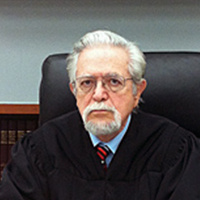Torrance Estate Lawyer, California
Sponsored Law Firm
-
 x
x

Click For More Info:
-
Law Offices Of Anthony Abbott
375 S. Rancho Santa Fe Rd. 105 San Marcos, CA 92078» view mapEstate Law Over 50 Years Of Experience
The Law Offices of Anthony Abbott has been working for the people in the great state of California for over 50 years.
800-497-8821
Sibylle Grebe
✓ VERIFIED *Status is reviewed annually. For latest information visit hereSibylle Grebe is an attorney licensed to practice law in all courts in the State of California. She is a partner in the law firm of The Probate House,... (more)
Amiel Lee Wade
✓ VERIFIED *Status is reviewed annually. For latest information visit hereAttorney Wade specializes in civil litigation, conducting jury trials in complex cases and in helping individuals and businesses in every phase of the... (more)
Jennifer Elizabeth Larossa
✓ VERIFIED *Status is reviewed annually. For latest information visit hereJennie LaRossa graduated from Loyola Marymount University with a B.A. in psychology and obtained her Juris Doctor from Western State University Colleg... (more)
Victor Manuel Lopez Martinez
✓ VERIFIED *Status is reviewed annually. For latest information visit hereMy journey in law was inspired by personal experiences and a commitment to advocating for individuals and families. Growing up in a Spanish-speaking i... (more)
Kahlil Jerome McAlpin
✓ VERIFIED *Status is reviewed annually. For latest information visit hereKahlil McAlpin is a lawyer serving Playa Del Rey in Chapter 7 Bankruptcy and Bankruptcy & Debt cases. McAlpin Law Realty 8616
Sibylle Grebe
Gary Talavera
FREE CONSULTATION
CONTACTShelley Nash
FREE CONSULTATION
CONTACTDavid E. Simon
FREE CONSULTATION
CONTACT Anthony Abbott San Marcos, CA
Anthony Abbott San Marcos, CA




